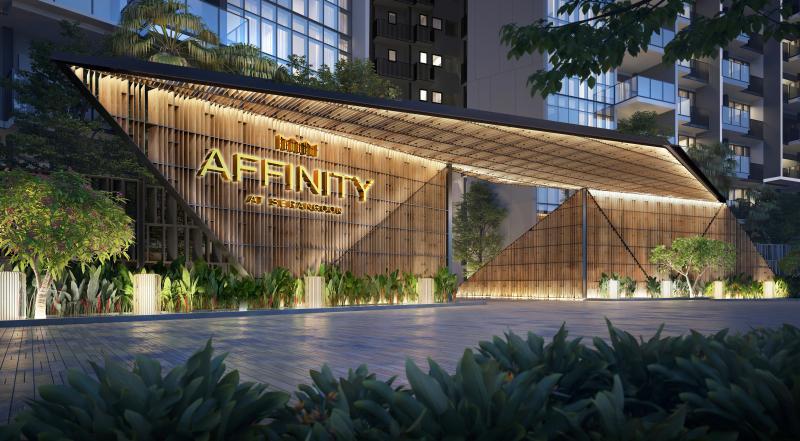Singapore's needs in education, healthcare, security and defence are growing, and the upcoming Budget will focus on these areas, said Finance Minister Heng Swee Keat. Mr Heng, who will deliver the Budget statement on Feb 18, said another priority will be to help Singaporeans grapple with significant changes taking place in the global economy and make use of opportunities, especially with technology. Mr Heng gave a quick overview of some key challenges that Singapore faces. The Budget's "one simple aim" is to improve the lives of Singaporeans, and "the needs are very large, whether it is building big-scale infrastructure projects, like our MRT lines or the airport, or especially our HDB flats, or whether it's taking care of our seniors, and in fact all Singaporeans".
He also highlighted the importance of keeping the economy vibrant amid global uncertainties and rapid technological changes. Mr Heng cited developments such as the new risks building up in the global economy, be it Brexit or the protectionist movement growing around the world. He said: "People's support for globalisation is weakening because there is a sense that globalisation has left some people behind. And unfortunately, some of the developments are negative, even for their own country. Even for people who advocated a particular course of action, they're now regretting it." Said Mr Heng: "It just shows that when we make economic policies, we have to be very, very thoughtful of the long-term implications, and that we cannot avoid doing the difficult things." Singapore is on the right track by starting the process of restructuring its economy, he added.
Budget 2019 could be generous - election or not: analysts
With Singapore's next general election due by April 2021, economists and political watchers see a chance that the upcoming Budget may be the final one before the polls, raising expectations of goodies such as handouts and tax rebates. Yet, regardless of whether Budget 2019 turns out to be a pre-election one, it is expected to be expansionary, given the economic outlook and recent accumulated surpluses.
The current government's accumulated surpluses are one main reason experts expect Budget 2019 to be expansionary, election or not. The government has accumulated surpluses of about S$15 billion from 2016 to 2018. As surpluses in one term of government cannot be carried over to the next, the government may choose to distribute the end-of-term surplus back to Singaporeans before the next election.
Singapore tops Asia-Pacific in talent competitiveness
For the sixth straight year, Singapore ranked first in the Asia-Pacific and second worldwide for attracting and developing talent, in the annual Global Talent Competitiveness Index released on Monday. Second only to Switzerland, Singapore was the only Asia-Pacific country in the top 10 and the only non-European county besides the United States, which came in third. Compared to other cities, however, Singapore fared less well, ranking 17th in the accompanying Global City Talent Competitiveness Index. The top three spots for cities were taken by Washington DC, Copenhagen and Oslo. The highestranking city in Asia-Pacific was Seoul in 10th place, with Taipei also ranking ahead of Singapore at 15th. Both indices are published by Insead in partnership with the Adecco Group and Tata Communications.
A S$72 million training fund has been set up to help the building industry move away from labour intensive methods to more "smart" processes. The funds will go towards boosting skills in the building sector, including financing existing scholarship and sponsorship programmes for students and adults, said National Development Minister Lawrence Wong. The funds, which have been earmarked from June last year to May 2020, could benefit the 118,000 locals working in the construction industry as well as architects and facility managers. "The construction industry is rapidly changing, and it is changing all over the world, including in Singapore," said Mr Wong, adding that these changes are still behind the pace seen in sectors like transport and finance.
He noted that venture funding in building technology is growing and traditional firms are starting to do more to transform how they build, picking up new capabilities in automation, prefabrication and digital building and design methods. "To make all these happen, our people are at the heart of this transformation journey. How far we go depends on the quality of the people we have," added Mr Wong, who was speaking at an iBuildSG scholarship ceremony at the National University of Singapore. The S$72 million fund will support an enhanced iBuildSG Scholarship and Sponsorship programme for those seeking academic qualifications in a full-time undergraduate, diploma or Institute of Technical Education track. The programme partners students with industry firms so they will have a job in the sponsoring company on graduation.
Singapore releases model governance framework on AI
Singapore has released a model governance framework on artificial intelligence (AI) which companies in the Republic and elsewhere can adopt as they grapple with issues that have emerged with new technology. The framework was released by S Iswaran, Minister for Communications and Information, at the World Economic Forum (WEF) meeting which he is attending. The framework is the first in Asia to provide detailed and readily implementable guidance to private-sector organisations using AI, said the Infocomm Media Development Authority (IMDA). It said the framework is a "living document" intended to evolve along with the fast-paced changes in a digital economy. Singapore also announced a collaboration with the WEF's Centre for the Fourth Industrial Revolution to further drive AI and data innovation.
Singapore's headline - or overall - inflation climbed to 0.5 per cent last month compared with the same period in 2017, after falling to a six-month low of 0.3 per cent the month before. The change reflects higher inflation for services and retail items, as well as a smaller decline in accommodation costs, said the Monetary Authority of Singapore (MAS) and Ministry of Trade and Industry (MTI). Core inflation, which strips out accommodation and private transport costs, edged up last month as well. It rose to 1.9 per cent year on year, up from 1.7 per cent in November last year, mainly owing to bigger increases in the costs of services and retail items. Both figures are slightly higher than expected, with a Bloomberg poll of analysts tipping overall inflation to be 0.3 per cent and core inflation, 1.8 per cent. But for the whole of last year, overall consumer prices rose 0.4 per cent - lower than the 0.6 per cent rise in 2017. Core inflation for the year went up to 1.7 per cent, from 1.5 per cent in the previous year. For this year, MAS and MTI expect core inflation to be in the forecast range of 1.5 per cent to 2.5 per cent.
Poll: Singaporeans expect overall consumer prices to stay flat
Singaporeans do not expect overall consumer prices to budge much in the next 12 months, but think that core inflation - which excludes housing and private transport costs - could still inch up. People here figured that inflation would hit 2.85 per cent in the year ahead, the quarterly DBSSMU Singapore Index of Inflation Expectations poll found last month. This was the third straight quarterly drop and a dip from the 2.88 per cent pinged by the previous survey three months prior. Meanwhile, core inflation expectations for the year ahead edged up from 2.92 per cent in September to 2.99 per cent last month, according to results released.
More government support for a slowing economy expected: Fitch
Fitch Solutions analysts are looking at looser fiscal policy from the Singapore government in February's Budget, according to a short commentary published by the agency. Given factors such as an impending global slowdown and the pressure on the Republic's exportdriven economy, the report said that the rising external downside risks "are likely to prompt policymakers to adopt policies to cushion the economy through domestic-oriented initiatives" such as public infrastructure spending. This could include pushing up rail and other redevelopment projects, as a softer public works pipeline was seen as a drag on the Singapore economy and its struggling construction sector in the second half of last year. Such infrastructure works have already been put on the table for the coming decade, the report noted.
E-commerce offering more long-term career opportunities
While jobs in South-east Asia's e-commerce sector used to be viewed as short-term, the sector is now offering more long-term career opportunities, experts have told The Straits Times. They were responding to a study released by e-commerce company iPrice Group last month, which said the number of employees in the biggest e-commerce firms in the region grew by around 40 per cent over the last two years. The study was conducted through LinkedIn and covered Singapore, Malaysia, Indonesia, Vietnam, Thailand and the Philippines. It looked at e-commerce giants such as Lazada, Shopee, Zalora, Tokopedia and Bukalapak. It found that the workforce of these largest players grew by an average of 808 employees per quarter between the end of 2016 and the third quarter of last year, equivalent to around 40 per cent over the two-year period. These figures come amid reports of a growing Internet economy in South-east Asia, which is on track to exceed US$240 billion (S$326 billion) by 2025, according to a report released last November by Google and Temasek. This economy now stands at US$72 billion in gross merchandise value (GMV). However, while people think of short-term roles such as delivery drivers in the e-commerce hiring space, experts said the sector is hiring employees for long-term roles.








 RSS Feed
RSS Feed
